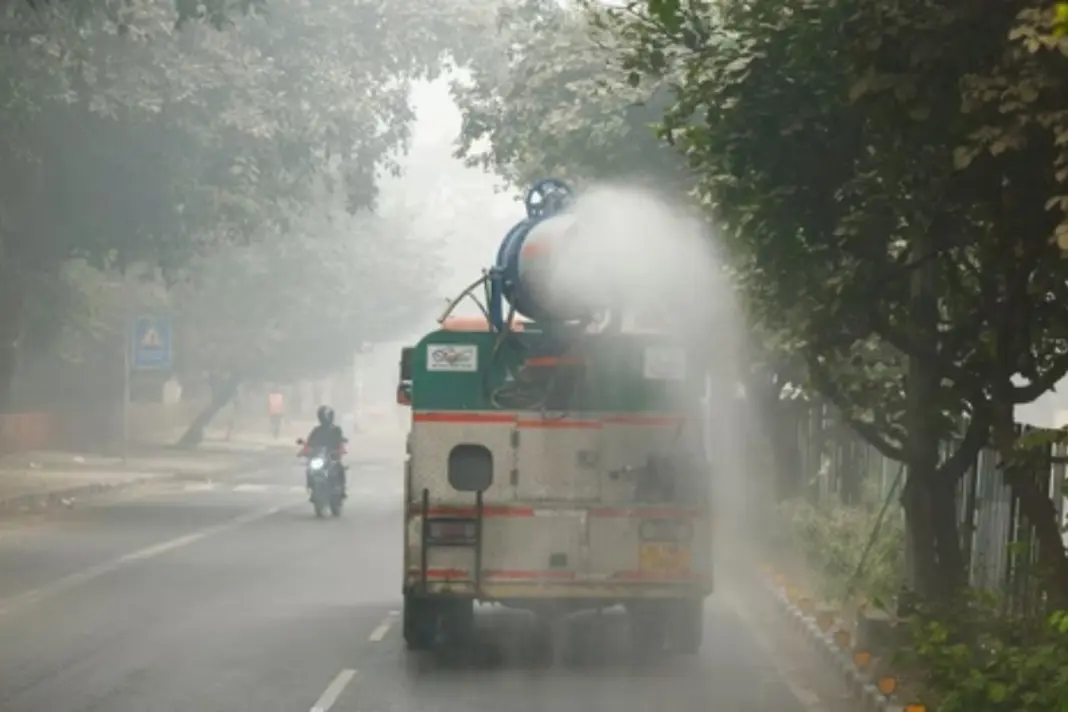Delhi is experiencing a disastrous air-pollution crisis that has the Air Quality Index (AQI) at 427, indicating severe air toxicity. Even with the government having initiated Stage III of the Graded Response Action Plan (GRAP) to ameliorate emissions, Delhi and the surrounding area remain enveloped by thick smog and toxic air, alarming public health experts.
Why is the AQI So Bad Right Now?
Experts describe a horrible cocktail of weather and human factors. Air-quality analysts say that low wind speeds combined with cold stagnant air leave the pollutants trapped close to the ground and unable to disperse.
To further complicate the situation, crop residue burning in neighbouring states is also playing havoc with air quality. Toss in emissions from transportation, construction dust, and industrial emissions and the capital is trapped under a toxic lid.
Health Concerns: Professionals’ Alert of Lasting Harm
Dr Rakesh K. Chawla, an authority on lung health, called the surge in pollution “a relentless attack on the lungs.” He cautioned that frequent exposure to dangerous doses of increased fine particulate matter in the air (i.e. PM2.5) alters immune response, exacerbates asthma, and possibly hastens chronic lung disease.
DON'T MISS
In a recent research study in the Delhi-NCR, many alarming trends emerged:
- 8 out of 10 households shared that at least one member has become ill due to polluted air.
- Many people who live in Delhi-NCR distrust government monitors of pollution, saying private monitors and their readings of the Air Quality Index (AQI) show worse numbers.
- Dr Randeep Guleria (ex- director of AIIMS) said that the situation is a “public health catastrophe in slow motion.”
What Do Experts Think Individuals Should Do?
Health organizations have made recommendations aimed at those who live in Delhi-NCR and other contaminated areas:
- Stay inside at times of high outdoor pollution, i.e. early morning.
- Wear N95 masks to minimise your exposure to outside contaminants. The popper mask can filter out 95% of harmful particulates.
- Find workouts that can be done indoors, such as yoga or treadmill walking, versus going outdoors.
- Purchase air purifiers (if financially possible) to reduce indoor pollution.
- Consider lowering your personal pollution; some experts suggest one day a week to be “petrol free” when you can.
Are Existing Measures Sufficient?
Experts are concerned that while GRAP-III measures prohibit certain construction activities, keep heavily polluting vehicles off the road, and limit industrial emissions, these fixes are reactive in nature, rather than being a sustainable solution to the air quality problem. Dr Chawla has called for a shift in the system towards stricter standards for vehicle emissions, greater access to electric public transportation, and improved compliance in stubble burning enforcement.
According to a related report, the Delhi air quality early warning system can accurately predict very poor or severe air quality days over 80% of the time, but experts agree that timely and stricter measures based on this information are very important.



